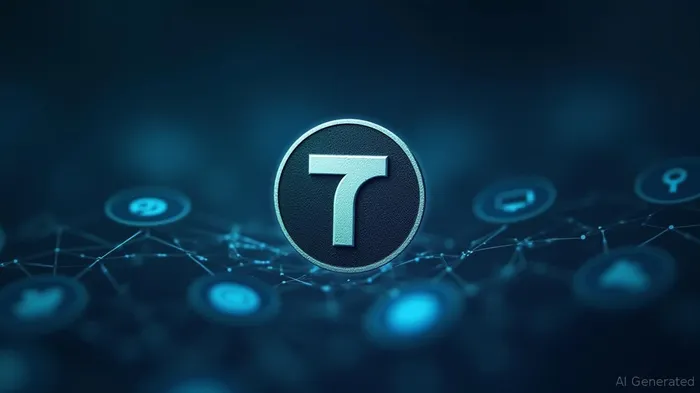Tether to Launch USDT in US Under GENIUS Act
Tether, the issuer of the widely used stablecoin USDT, has announced its intention to launch USDT in the United States under the newly enacted GENIUS Act. The GENIUS Act, recently signed into law, provides a regulatory framework for foreign issuers of stablecoins, allowing them to operate legally within the U.S. market. Tether CEO Paolo Ardoino confirmed that the company will register USDT through the "foreign issuer" pathway outlined in the GENIUS Act. This move is significant as it aligns Tether's operations with U.S. regulatory standards, potentially paving the way for broader acceptance and use of USDT in the American market.
The GENIUS Act aims to create a clear regulatory environment for stablecoins, which are digital assets pegged to the value of a fiat currency, such as the U.S. dollar. By complying with the act, Tether can ensure that USDT meets the necessary legal and regulatory requirements, thereby enhancing its credibility and trustworthiness among U.S. investors and financial institutionsFISI--. This development is part of a broader effort by Tether to expand its presence in the U.S. market, where stablecoins are increasingly being used for various financial transactions and investments.
In addition to registering USDT under the GENIUS Act, Tether is also planning to launch a U.S.-specific stablecoin. This new stablecoin will be tailored to meet the unique regulatory and market conditions of the United States, further solidifying Tether's commitment to the American market. The launch of a U.S.-specific stablecoin is seen as a strategic move to compete with other stablecoin issuers, such as Circle, which offers USDC, another popular stablecoin in the U.S. market.
Tether's plans to comply with the GENIUS Act involve implementing a revised audit regime and making changes to USDT’s reserve structure. Ardoino stated that the $13 billion net income the company generated last year provides ample resources for these adjustments. He confirmed that CFO Simon McWilliams, appointed in March, is working to engage an auditor from one of the Big Four accounting firms. Ardoino estimated that it will take around three years for Tether to enter the U.S. market. The company also intends to launch a version of USDT specifically targeting the United States and institutional investors. The new product will be "focused on payments and extremely high efficiency," the executive clarified.
In May, Ardoino said the company could issue a U.S. stablecoin as early as 2026. At that time, he reiterated that USDT’s main business interests remain outside of the United States. "Our customer base is three billion people without accounts or access to the banking system," Ardoino emphasized. Ardoino expressed confidence that adapting to the new rules would be “simple” for the company. Following the introduction of MiCA regulations in the EU, Tether has shifted focus to supporting third-party regulated stablecoin projects through its Hadron platform.
The GENIUS Act represents a significant milestone in the regulation of stablecoins in the United States. By providing a clear pathway for foreign issuers, the act aims to foster innovation and growth in the stablecoin market while ensuring that these digital assets are subject to appropriate regulatory oversight. Tether's decision to register USDT under the GENIUS Act is a testament to the company's commitment to compliance and its willingness to adapt to the evolving regulatory landscape.
The entry of USDT into the U.S. market under the GENIUS Act is expected to have a positive impact on the stablecoin ecosystem. It will provide U.S. investors with access to a widely used and trusted stablecoin, enhancing liquidity and stability in the market. Furthermore, the compliance of USDT with U.S. regulatory standards will likely attract more institutional investors, who are increasingly looking for stable and regulated digital assets to include in their portfolios.
In summary, Tether's plans to launch USDT in the U.S. under the GENIUS Act represent a significant development in the stablecoin market. By complying with the act's regulatory framework, Tether aims to enhance the credibility and trustworthiness of USDT, while also expanding its presence in the American market. The launch of a U.S.-specific stablecoin further underscores Tether's commitment to the U.S. market and its willingness to adapt to the evolving regulatory landscape. This move is expected to have a positive impact on the stablecoin ecosystem, providing U.S. investors with access to a trusted and regulated digital assetDAAQ--.

Quickly understand the history and background of various well-known coins
Latest Articles
Stay ahead of the market.
Get curated U.S. market news, insights and key dates delivered to your inbox.



Comments
No comments yet